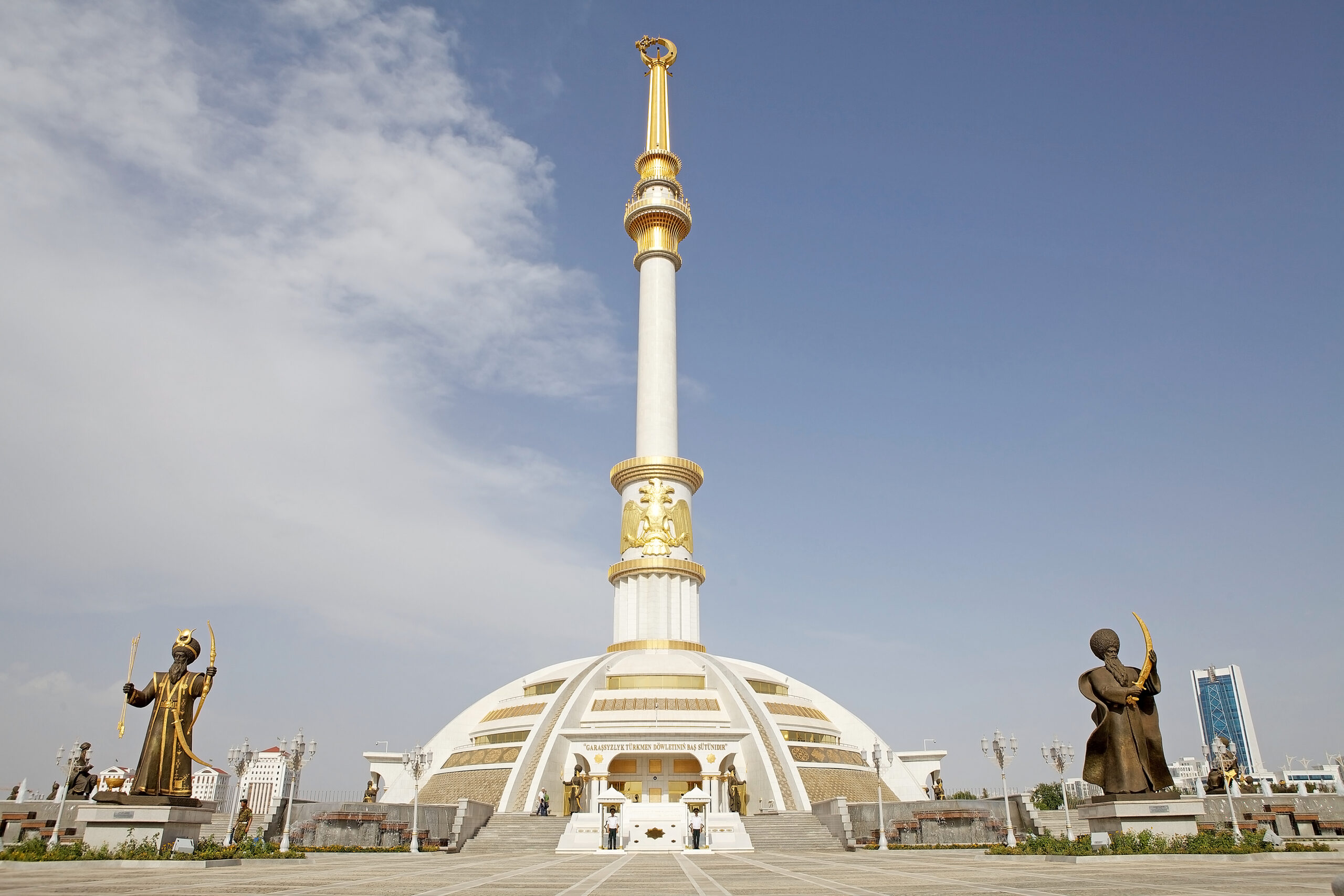Turkmenistan has been facing an increasing crisis of food, primary products, and cash shortages. The crisis is a result of lower natural gas prices, Turkmenistan’s primary export, and a Chinese monopoly over gas exports. Although the regime often trumpets its economic successes, the crisis has accelerated, and imports of food and consumer goods were cut due to the emergence of COVID-19, the presence of which local authorities have still not officially confirmed. As a result, Turkmenistan’s population faces a food crisis unprecedented even when compared to the Soviet and post-Soviet food and money shortages.
Turkmenistan’s economy relies very heavily on gas exports to China, the income from which either returns to China as repayment of debt or can be found in non-budget funds controlled by the president and his family. The combination of these two things has largely been responsible for the state budget’s funding shortfall and unavailability of foreign currency in the country. Consequently, the depreciation of the country’s currency, the Manat on the black market has climbed up to 10 times in 2021 comparing to the official rate rendering most of the country’s population heavily dependent on subsidised food and primary products.
In the midst of this crisis, the country has had to increase its food imports. Food imports have been dominated by members of the president’s family who have created a system that monopolises import and distribution networks and profit from both market sales and state subsidies. In contrast, small retailers of bazaars have been trapped between high prices from food suppliers and forcible implementation of state-imposed prices. They often have no way out but to trade at a loss, close their business, or illegally sell their products for market prices from “under the counter”. In addition, the majority of the population has turned to subsidised products in state-owned shops despite their scarcity and insufficient distribution. As a result, food shortages are further exacerbated with large crowds, queues and even fights, while the authorities have reacted with the banning of queuing or organising deliveries of food products directly to households.
Against this backdrop, signals of growing dissatisfaction are increasingly evident in society. Dissatisfaction has been expressed mostly in relatively anonymous ways such as signs denigrating the president on Turkmen bills or more active discussions on foreign opposition media and social networks despite harsh censorship and internet walls. The situation has also sparked protests by Turkmens living abroad.
Current oppositional forces face two primary obstacles. The first is that the regime’s repressive apparatus still maintains loyalty to the president and his family. The elite continues to ignore the country’s problems and has preferred to hide them instead of addressing them. The regime has also successfully dispersed local protests and repressed most active individuals or their relatives inside Turkmenistan. In some local cases, the regime has provided partial appeasement of demands which have calmed tensions.
The second obstacle is that there are no real opposition leaders outside and inside Turkmenistan that could raise the protests’ potential. Most are silenced or intimidated by the regime’s excessive brutality against any dissent, and have not been able to create resistance groups with the mass support of the population, despite the latter’s general dissatisfaction.
The apparent preparations for changing the country’s rulership from President Gurbanguly Berdimuhamedov to his son might affect this situation. Serdar Berdimuhamedov has a reputation of having less authority within the elite, which could open the way for an attempt to threaten the Family from within the inner circles of the regime. Dissatisfaction has also been growing by businessmen who saw their businesses privatised and taken over by the president’s family.
However, we should not underestimate the personality of Serdar Berdimuhamedov as a prospective leader who will undoubtedly do his best to cement his power and the position of his family. In addition, the current president, Gurbanguly Berdimuhamedov, is very cautious in passing over full rein. He learned the lessons of power transition from both the Uzbek and Kazakh scenarios, the former with fatal consequences for the ruling family, while in the latter case the leaders’s power was maintained over the country even after stepping back from the presidential office.
Although the sudden breakdown of the regime under some spontaneous mass demonstrations cannot be excluded, a frightened and passive society will probably be unable to do so in a concerted way without the necessary support from at least part of the repressive organs and elites in the country.
The Turkmenistan food crisis represents a big opportunity for the enrichment of the narrow elite and poses a major threat to the welfare of the country’s population, but the state’s array of repressive measures allows it to prevail over the anger and dissatisfaction of a populace increasingly exhausted by its everyday struggle to make ends meet.
The views expressed in the Near East Policy Forum are those of the authors and do not represent the views of the Near East Policy Forum or any of its partner organisations.





Leave a Reply